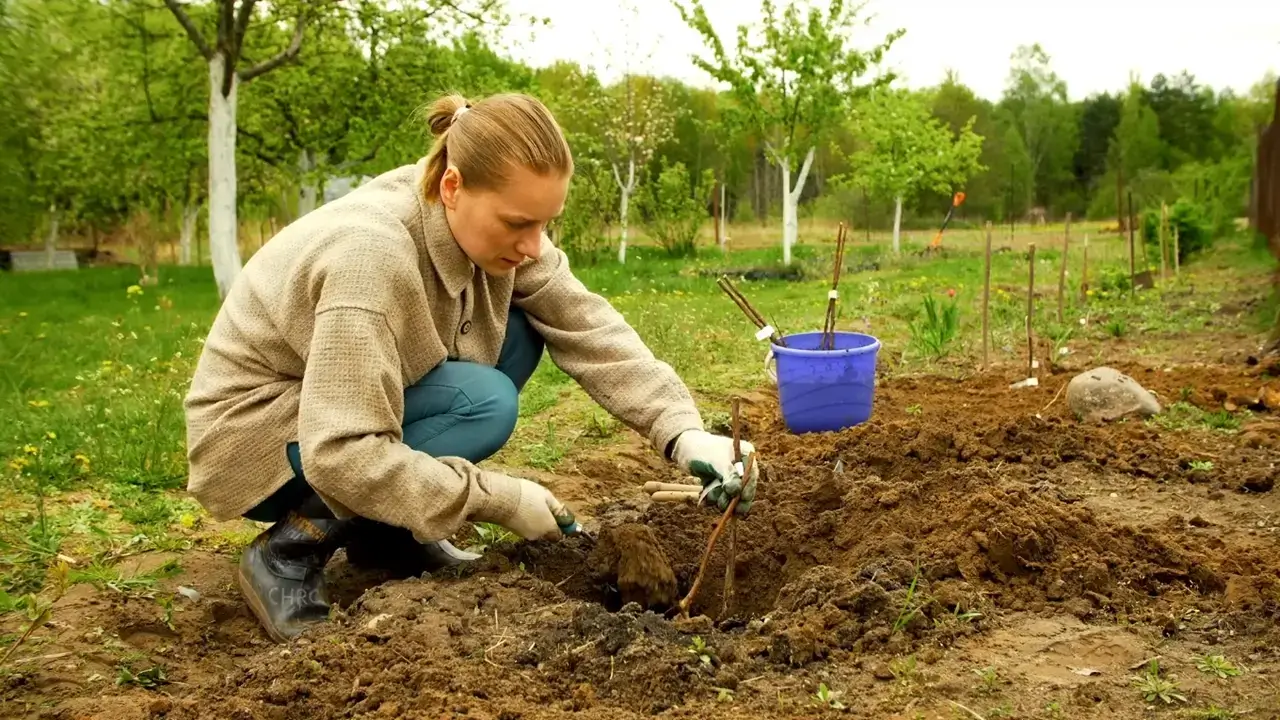‘Only children’ sometimes become victims of loneliness or become stubborn or mature before time. Then what is the right way to raise them?

Due to the hustle and bustle of life and some other reasons, today many couples have started giving importance to one child i.e. single child.
They have started to understand that by providing better upbringing to a child, he can be made a good citizen and successful person. But raising an only child is a bit challenging.
The reason is that only children want more care. They can be stubborn and also suffer from loneliness. Therefore, parents need to pay more attention to them.
Don’t Make Them Realize:
Children are innocent. They are unable to differentiate between good and bad. If you repeatedly tell your only child that he is your everything and you can do anything for him, then the child’s expectation of gaining importance for himself will continuously increase and he will become stubborn. Then he will put pressure on you to do whatever is right or wrong. Therefore, do not make him feel that he is given too much importance.
The advice mentioned highlights an important aspect of parenting. Let’s break it down:
- Children’s Innocence: Children, being innocent and impressionable, often take words and actions to heart. They may not fully differentiate between what is good and what is not. Therefore, as parents, we need to be mindful of the messages we convey to them.
- Avoid Excessive Praise: While it’s natural to express love and affection for our children, repeatedly telling an only child that they are our “everything” can have unintended consequences. When a child believes they are the center of the universe, their expectations of importance increase. They may become stubborn and put pressure on parents to fulfill their desires, regardless of whether those desires are right or wrong.
- Balancing Love and Realism: It’s essential to strike a balance. Show love and care, but also provide a realistic perspective. Children need to understand that they are valued, but they are not entitled to everything. Teaching them about responsibility, empathy, and the consequences of their actions helps them develop a healthy mindset.
- Avoid Overindulgence: Overindulgence can lead to a sense of entitlement. Instead of making a child feel that they are given too much importance, encourage them to appreciate what they have and understand the value of effort and compromise.
In summary, love your child unconditionally, but also guide them toward understanding their place in the world. 🌟
In summary, parents should cherish and care for their children, love them unconditionally but also ensure they understand their place in the family and society. Balancing love with reasonable expectations helps foster healthy development and responsible behavior.🌟
Like a Friend:
Having no siblings makes a single child feel alone. Seeing others’ brothers and sisters, one feels the need to have one’s own brothers and sisters. In such a situation, you have to treat him like a friend and make him realize that if not brothers and sisters, he at least has parents. This will eliminate the feeling of loneliness from the child’s mind.
When a child grows up without siblings, they may experience feelings of loneliness due to observing other children with brothers and sisters. In such cases, it’s essential to approach the child as a friend and help them recognize that even without siblings, they have their parents as companions.
Here’s how to implement this approach:
- Friendship: Treat your child with the same warmth and understanding you would offer to a friend. Engage in conversations, share experiences, and actively listen to their thoughts and feelings. By fostering a friendly relationship, you create a sense of companionship.
- Parental Bond: Remind your child that they are not alone. While they may not have siblings, they have loving parents who care deeply for them. Emphasize the unique bond you share as a family.
- Shared Moments: Spend quality time together. Participate in activities that strengthen your connection—whether it’s playing games, cooking, or simply chatting. These shared moments reinforce the idea that they are not isolated.
- Open Communication: Encourage your child to express their emotions openly. If they feel lonely or wish for siblings, listen empathetically. Acknowledge their feelings and reassure them that they are valued and cherished.
By treating your child like a friend and emphasizing the significance of your parent-child relationship, you can help alleviate their feelings of loneliness. 😊
Adequate Time:
You may be a working person, but even in your busy schedule, make sure to take out enough time for your child every day and talk to him about his problems, routine and interests. Eat dinner with him, have breakfast and share everything. Due to this he will not feel lonely and he will remain close to you.
The advice mentioned emphasizes the importance of quality time spent with your child, even amidst a busy schedule. Let’s break it down:
- Adequate Time: As a working individual, it’s crucial to allocate sufficient time for your child. This means intentionally setting aside moments to engage with them. Quality time involves being fully present, actively listening, and participating in meaningful interactions.
- Daily Conversations: Regularly talk to your child about their problems, routine, and interests. Ask open-ended questions to encourage them to share their thoughts and feelings. By doing so, you create a safe space for them to express themselves.
- Shared Meals: Eating meals together is a powerful bonding experience. Dinner and breakfast are ideal times to connect. During these shared meals, discuss your day, ask about theirs, and enjoy each other’s company. It’s not just about the food; it’s about building connections.
- Loneliness Prevention: When you actively engage with your child, they won’t feel lonely. Loneliness can lead to emotional distress, so maintaining closeness through conversation and shared experiences is essential.
Remember, it’s not about the quantity of time but the quality. Be present, listen, and cherish these moments—you’ll strengthen your relationship with your child. 😊
Social Connection:
To ensure that the child does not remain lonely, create social connections right from childhood. Encourage him to meet and talk to good people around him. Give life to relatives also. The child also gets social strength from contact with relatives.
Social connections play a crucial role in a child’s development. Let’s explore why they are essential and how you can foster them:
Importance of Social Connections for Children:
- Well-Being: Healthy social connections contribute to a child’s overall well-being. They go beyond merely preventing loneliness; they are conduits for healthy development—both physically and emotionally.
- Resilience: Positive relationships with family members, friends, and peers build resilience. Children who feel supported are better equipped to handle life’s challenges.
- Self-Esteem: Interacting with others boosts self-esteem and reduces anxiety and depression in young people.
Stages of Social Development:
Infancy:
- Social interaction is closely tied to emotional development during infancy.
- Babies primarily connect with their caregivers (usually parents) who provide love, nurturing, and daily interactions.
- Positive bonding experiences are crucial for healthy brain development. Lack of social connection can hinder emotional and physical growth.
Toddlerhood and Beyond:
- As children grow, their social networks evolve.
- Toddlers learn through play and interactions with peers. They develop empathy, communication skills, and cooperation.
- School-age children form friendships, learn teamwork, and navigate social norms.
- Adolescents seek peer acceptance, explore identity, and build deeper relationships.
- Throughout these stages, socialization meets specific mental and behavioral needs.
How to Foster Social Connections:
Invest in Relationships:
- Strengthen your relationship with your child. Secure attachments provide a foundation for healthy relationships as they grow.
- Be emotionally available, listen actively, and create a safe space for them to express themselves.
Model Healthy Social Connection:
- Demonstrate positive interactions with others. Children learn by example.
- Encourage empathy, kindness, and respectful communication.
- Teach them how to navigate friendships and resolve conflicts.
Expand Social Circles:
- Encourage your child to meet and talk to good people around them—neighbors, classmates, and community members.
- Maintain connections with relatives. Family bonds provide social strength and a sense of belonging.
Remember, social connections are not just about preventing loneliness; they shape a child’s lifelong well-being and resilience. 😊
Value of Relationships:
Children who have siblings understand the importance of relationships very well, but an only child understands the value of relationships less if he is not made to realize it. In such a situation, it is important to tell your single child the value of relationships, only then will he know to value every relationship.
The concept of the value of relationships is essential for both children with siblings and only children. Let’s explore this further:
Children with Siblings:
- Having siblings exposes children to various types of relationships—brother-sister, sibling-sibling, and family dynamics.
- They learn about sharing, compromise, conflict resolution, and emotional bonds.
- Siblings provide companionship, playmates, and a sense of belonging.
- These experiences contribute to their understanding of relationships.
Only Children:
Without siblings, an only child may not naturally encounter the same diversity of relationships.
It becomes crucial for parents to actively teach them about the value of relationships.
Here’s how parents can help:
- Modeling: Demonstrate healthy relationships within the family. Show love, respect, and empathy.
- Explaining: Talk to your child about different types of relationships—friends, extended family, teachers, and neighbors.
- Emphasizing Connection: Help them understand that relationships enrich life. Friends become like chosen siblings, and family bonds are precious.
- Teaching Empathy: Encourage them to consider others’ feelings and needs. Empathy fosters meaningful connections.
Why Teach the Value of Relationships:
- Appreciation: When children recognize the value of relationships, they appreciate the people around them.
- Healthy Bonds: They learn to build and maintain healthy connections.
- Loneliness Prevention: Understanding relationships reduces feelings of loneliness.
- Life Skills: Relationship skills are essential for success in personal and professional life.
In summary, whether a child has siblings or not, teaching them about relationships ensures they grow up valuing every connection they make. 😊
Need for Creativity:
Nowadays, parents focus solely on their child’s education. Of course, studies are important, but other creative activities are equally important for them. For example, connect them with music, meditation etc. Encourage participation in sports activities.
Creativity is a vital aspect of a child’s holistic development. While education and studies are crucial, nurturing creativity through various activities is equally important. Let’s explore why and how:
Why Creativity Matters:
- Holistic Growth: Creativity fosters well-rounded development. It goes beyond academic knowledge and engages different parts of the brain.
- Problem-Solving Skills: Creative activities encourage children to think outside the box, find innovative solutions, and adapt to new situations.
- Emotional Expression: Art, music, and other creative outlets allow children to express their emotions, thoughts, and experiences.
- Confidence Boost: Accomplishing something creative boosts self-esteem and confidence.
Creative Activities to Encourage:
- Music: Introduce your child to music. Whether it’s playing an instrument, singing, or simply appreciating melodies, music enhances cognitive abilities and emotional well-being.
- Art and Craft: Painting, drawing, sculpting, and crafting unleash creativity. Encourage experimentation and self-expression.
- Writing and Storytelling: Writing stories, poems, or keeping a journal nurtures imagination and language skills.
- Meditation and Mindfulness: Teach mindfulness techniques. Meditation helps children manage stress, focus better, and enhance creativity.
- Sports and Physical Activities: Sports promote teamwork, discipline, and physical fitness. They also stimulate creativity through strategic thinking and improvisation.
- Nature Exploration: Encourage outdoor adventures—hiking, gardening, or observing wildlife. Nature sparks curiosity and creativity.
- Cooking and Baking: Involve your child in the kitchen. Cooking is both creative and practical.
- Drama and Role-Play: Acting out scenarios develops imagination and empathy.
Balancing Education and Creativity:
- Schedule Time: Allocate specific time for creative activities alongside studies.
- Encourage Curiosity: Ask open-ended questions. Encourage exploration and curiosity.
- Celebrate Effort: Praise their creative endeavors, even if the result isn’t perfect.
- Limit Screen Time: Excessive screen time can hinder creativity. Encourage hands-on experiences.
Remember, a well-rounded child thrives academically and creatively. Nurture their imagination—it’s the spark that lights up their world! 🌟
Self-Reliance is Important:
If you do not allow your only child to do any work, and make him dependent on servants even for small tasks, then believe me, you are not raising the child properly. He will develop the habit of depending on others for every work and he will not be able to do any work himself in future also. Therefore, it is important to get every work done from small to big. With this he will become self-reliant and will be able to create a distinct identity.
The concept of self-reliance is crucial for a child’s development. Let’s explore why it matters and how to foster it:
Understanding Self-Reliance:
- Self-reliance means being independent, capable, and confident in handling tasks and responsibilities.
- When children rely solely on others for every task, they miss out on valuable learning experiences.
Why Self-Reliance Matters:
- Life Skills: Learning to perform tasks—whether small or big—builds practical life skills. These skills serve them well as they grow.
- Confidence: Accomplishing tasks independently boosts a child’s confidence. They learn that they are capable of overcoming challenges.
- Identity Formation: Self-reliance contributes to a distinct identity. It shapes their character and resilience.
How to Foster Self-Reliance:
Age-Appropriate Tasks:
- Start with age-appropriate responsibilities. Even young children can help with simple chores like tidying up toys or setting the table.
- Gradually increase the complexity of tasks as they mature.
Encourage Problem-Solving:
- When faced with a challenge, encourage them to think critically. Ask questions like, “What can you do to solve this?”
- Avoid immediately providing solutions. Let them explore options.
Teach Basic Skills:
- Cooking, laundry, basic repairs—these skills empower self-reliance.
- Show them how to tie shoelaces, fold clothes, or use tools.
Independence in Decision-Making:
- Involve them in decisions. For instance, let them choose their clothes or plan a simple outing.
- Discuss consequences and choices.
Model Independence:
- Be a role model. Show them how you handle tasks efficiently.
- Avoid overprotectiveness; allow them to experience minor setbacks.
Celebrate Efforts:
- Praise their efforts, even if the outcome isn’t perfect.
- Acknowledge progress and growth.
Remember, fostering self-reliance doesn’t mean neglecting support—it means empowering children to handle life’s challenges with confidence. 🌟
No Upbringing as an Only Child
It is not difficult to raise a child alone. It's just that he has to be brought up a little differently, so that it doesn't sink into his mind that he's the only one, so he doesn't need to worry or do any work. Everything of the parents belongs to them. In such a situation, the upbringing of an only child has to be done with the same thinking as is done in case of having multiple children. Then he will neither become stubborn nor expect special care.
To ensure that the child does not remain lonely, encourage him to meet and talk to good people around him.


































Do you mind if I quote a few of your articles as long as I provide credit and sources back to your site? My website is in the very same area of interest as yours and my users would definitely benefit from a lot of the information you present here. Please let me know if this okay with you. Many thanks!
I loved as much as you’ll receive carried out right here. The sketch is attractive, your authored material stylish. nonetheless, you command get got an nervousness over that you wish be delivering the following. unwell unquestionably come more formerly again since exactly the same nearly very often inside case you shield this hike.
I have recently started a website, the information you offer on this web site has helped me tremendously. Thank you for all of your time & work.
You have brought up a very fantastic details, regards for the post.
Thank you for the good writeup. It in fact was a amusement account it. Look advanced to far added agreeable from you! By the way, how can we communicate?
I simply needed to thank you very much once again. I am not sure the things that I would have taken care of in the absence of these advice revealed by you relating to my area. This was an absolute hard problem in my view, however , finding out a new skilled fashion you resolved the issue made me to weep with contentment. Now i’m grateful for the service and as well , expect you are aware of a powerful job you are always carrying out teaching the others via your website. Most probably you haven’t encountered any of us.
At this time it seems like WordPress is the best blogging platform available right now. (from what I’ve read) Is that what you are using on your blog?
I appreciate, cause I found just what I was looking for. You’ve ended my 4 day long hunt! God Bless you man. Have a great day. Bye
I don’t commonly comment but I gotta state appreciate it for the post on this one : D.
You are a very bright person!
Throughout the awesome pattern of things you actually receive a B- with regard to effort and hard work. Exactly where you actually confused me was first on your specifics. You know, it is said, the devil is in the details… And it couldn’t be more correct right here. Having said that, allow me say to you precisely what did do the job. Your text is certainly quite persuasive and this is possibly the reason why I am making an effort to opine. I do not make it a regular habit of doing that. Next, while I can easily notice a jumps in logic you make, I am definitely not convinced of exactly how you appear to unite the points which in turn make your conclusion. For the moment I will, no doubt subscribe to your point but trust in the future you actually connect your facts much better.
Hi there this is kind of of off topic but I was wondering if blogs use WYSIWYG editors or if you have to manually code with HTML. I’m starting a blog soon but have no coding knowledge so I wanted to get guidance from someone with experience. Any help would be greatly appreciated!
When I originally commented I clicked the “Notify me when new comments are added” checkbox and now each time a comment is added I get four emails with the same comment. Is there any way you can remove me from that service? Bless you!
A lot of thanks for each of your work on this website. Kim takes pleasure in conducting internet research and it’s simple to grasp why. All of us learn all of the powerful form you give very useful ideas by means of your web blog and as well invigorate participation from some other people on the area of interest then my simple princess is now discovering a great deal. Enjoy the rest of the year. You are doing a wonderful job.